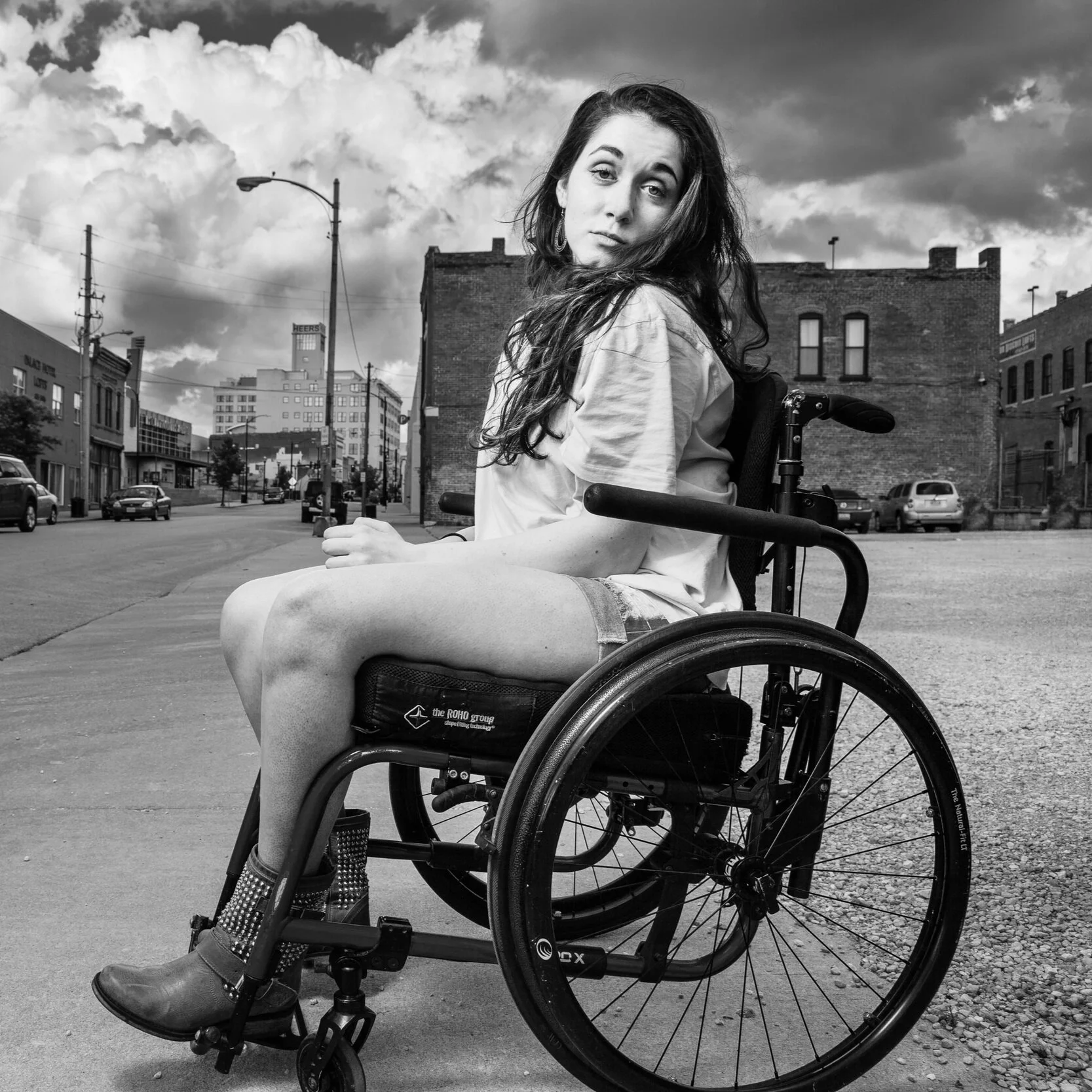Rachel with Hudson "More Alike Than Different"
PHOTOGRAPHY BY RANDY BACON
There are over 1 billion people living with some form of disability, making up the largest minority in the world. Disability has always been a natural part of the human condition. There have always been people with disabilities and there always will be, but still today, the greatest obstacle for these people and their families is not the actual disability itself - it is the outdated attitudes, false stereotypes and segregation surrounding disability in general. There is only one thing that comes from the way our society perceives people with disabilities, and that is fear. Fear comes from ignorance and unawareness and it is manifested in our society’s perceptions and views of people with disabilities. Nothing is wrong with people who have a disability. These amazing individuals are not broken, our society is the one that is broken.
When our son Hudson was born we only had a few moments with him until we heard the words gently escape our sweet labor and delivery nurse, “They think your son might have Down syndrome”. We stood by his crib as he fought to survive, underwent major surgeries, and spent many weeks in hospitals his first years of life.
One cold, scary February night, we almost lost him - he stopped breathing after his second gastrointestinal surgery and his heart rate plummeted. I stood in that hospital room and felt like my whole world was crashing down. All we ever wanted was to bring our baby home and love him. As we have seen time and time again, our son Hudson is resilient and he is a fighter. He overcame all the health obstacles and he did come home with us. He is an extraordinary miracle!
This past October at a cardiologist checkup, we discovered that Hudson’s existing heart conditions had gotten worse. Hudson underwent open heart surgery at St. Louis Children’s Hospital. Nine days later, after a successful surgery and tough recovery with severe gastrointestinal issues, we came home incredibly thankful for amazing doctors and a strong, courageous four-year-old boy.
All these things we never expected or could have imagined would happen, turned out to be the most beautiful, perspective building and life-changing moments in our lives.
Our greatest hope for Hudson is that people see him for who he is and not the label of his disability. Hudson was perfectly and wonderfully made. He has a bright future and unlimited potential. Our fear is for people to exclude Hudson because he has Down syndrome. History points to the fact that people with disabilities have often been underestimated, mistreated and not valued in our society. Society has made progress and is continually moving in the right direction, but we still have more work to do.
Inclusion is an attitude - one that that embraces and accepts every individual, regardless of any and all differences, as a valuable member of a family, classroom, church, playground, work, recreational groups, communities and society. Extensive research over the last decade shows that inclusion benefits ALL people - people with disabilities and people without disabilities. Here are a few examples of the benefits (for everyone) that come with an inclusive environment: higher academic performance in schools, better social skills, meaningful friendships, increased appreciation and acceptance of diversity, respect for all people, opportunities to master activities through observation and teaching others, increased school staff and community collaboration, higher expectations for everyone and increased opportunity for inclusion in future environments.
We want our son Hudson and other people with disabilities to feel loved, respected, and valued. We are all more alike than different. When people feel included as a valuable part of their community, there are no limits. Inclusion and acceptance can change our world and make it a better place for everyone.
How can we make the world a better place for people living with a disability and for people without? How can we be a more inclusive world? It’s simple. Take the time to get to know those in your community who have a disability or a family who has a child with a disability. Ask questions. When you see someone with a disability, say hello and spark a conversation. If your kids ask questions, answer them openly and honestly. Invite the little girl with Down syndrome to your child’s birthday party. If you are a business owner or employee - consider hiring or advocating for a person with a disability to work in your workplace - I promise you that your work environment will be a better place because of it. Stop using the "R-Word" and tell others to stop using it. Use people first language, “a person who has Down syndrome” vs “Downs person”. If you are a business owner, consider asking a person with a disability to be pictured in your marketing - the largest minority in the world should be represented in the our media, which has the power to present a real representation of our world.
If these were things everyone did on a regular basis, our world would be a better and more inclusive place for people with and without disabilities. When our perceptions and attitudes change, our actions follow. Every step towards a more inclusive world is a step towards a better world. We can make the change. We can make the difference.
The message that we, in our schools, workplace, communities and in society need to be sending to people with disabilities is: We see you for who you are. We respect and appreciate you. You are your own unique person. We want to include you. There are no limits for what you can do."
Learn about Ruby's Rainbow, a non-profit organization that promotes inclusion, grants college scholarships for adults with Down syndrome & creates awareness of the capabilities of these amazing individuals:
Support Ruby's Rainbow by taking the 321 Pledge for World Down Syndrome Day:





